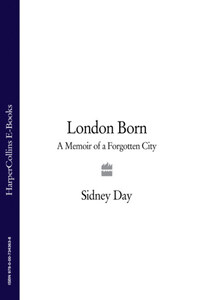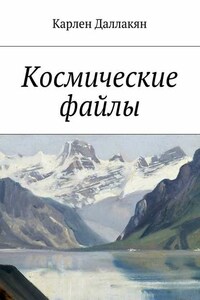‘Sid…Sid!’ Me mother was calling for me. I’m not kidding you—if there was five hundred people lived in our street, there was five hundred people out on the road, all looking at me. Me mum and a policeman was standing outside our house. Next to them was Mrs Leicester from the shop down the road. I thought about running but they had already seen me.
Me mum says, ‘You’ve had a loaf out of her shop and she wants the fourpence ha’penny for it.’
‘Pay up, you saucy sod,’ says Mrs Leicester.
She had come to find me. I don’t know how she knew it was me stole the bread, but there she was outside our house. I held out tuppence ha’penny. Me mum clumped me round the ear’ole.
‘Get inside!’
The policeman come inside with us. Me mum told him she had given me some money that morning and sent me to get a loaf of bread from Leicester’s shop.
I says, ‘Mrs Leicester weren’t about so I took it.’
I had crept in, picked up a nice crusty cottage loaf and slid out. After I got it home I thought to meself, ‘That’s fourpence ha’penny I’ve saved there.’ So I went up to the faggot shop on the corner of our road and spent tuppence on faggot and pease pudding—two lots on a piece of newspaper.
‘I ought to nick you,’ the policeman says.
But he just gave me a rollicking and it all got washed over at the death. All I got was a bleeding good hiding from me mum. Then she locked me in the bedroom. I was in there for hours. It got late and I could hear them all down in the kitchen. On the next floor up lived Wiggy Lenny. I went to the window and opened it.
I says, ‘Wig!’
After two or three times he opened the window.
‘What do you want?’
‘Got anything to eat? I ain’t had nothing.’
‘I got some melon I nicked.’
‘Give us a bit then—I’m bleeding starving.’
He tied the melon on a piece of string and dangled it down. Just as I grabbed it me mum come in and didn’t she smack me arse.
Me mum never let me get away with anything. She would say, ‘Don’t you ever do that again,’ and then—bang! She gave me some whackings but it only made me worse. The old man was away in the war and so me mum gave the orders. Sometimes, if the old man was home on leave and we made him really angry, he would unthread his Army belt, raise it up and roar at us—but he never hit us. It was me mum who would wring our necks if she found us out. Luckily, she never really knew what we was up to. Every day I nicked something from the shops and stalls round Archway, specially the greengrocer’s. If you are hungry you got to live.
They called me mum Dinah Day, but I think her real name was Alice Maud. Dad was William Day. We lived in Balmore Street, N19, a street where there was so much villainry going on, so many drunks and gambling and Gawd knows what, that at night the police would only come down in twos. Everyone knew it as Tiger Bay.
The house we lived in had two floors and a basement. The Lennys had the top floor and we had the first floor and the airy below. There was Mum, Dad, Alice, Bill, Bob, Jim, me and Lulu. On the pavement outside there was a round hole with a lid that was once the coal hole for the cellar. Me mate, Bill Rudd, who we called Ruddy, slept in the cellar on a mattress that me mum slung down there for him.
Ruddy’s real home was further up the street, four houses past the alley that went down to our school. Before he come to us his mum died and he lived for a while with his sister and his old man. His dad was a very strict old boy—a ‘stiff collar’ sort who liked a drink but never got drunk. He was a grave digger for donkey’s years at Highgate Cemetery, but he earned poor money—very poor money. Ruddy’s sister was a nurse up the hospital. Ruddy come to live with us when she found a bloke and moved out. Every day me mum gave me a cup of tea and a slice of bread and dripping to take down to him. The rest of his food he had to find hisself.
Our garden was just like all the other gardens in the street. We had one toilet for the two families and there was always a row about who should clean it out. The rest of the garden was filled with me dad’s geraniums, and pens and sheds for our chickens, ducks and rabbits. We kept pigeons to race and had an aviary full of wild birds. Our dogs was kept out there too—everyone in the street had dogs.
When I was only about four years old I went into the garden and seen one of our teeny chicks dragging his leg.
I says to me brother, ‘Oh look, Bill, that poor chicken has broke his leg.’
‘Has it?’
‘Yeah, poor thing.’
Bill says, ‘Go along to the chemist shop and get him some sixpenny chicken crutches.’
He gave me a sixpence and I went into the chemist at the end of our street. Inside was Mr Armitage, the tall old boy what owned it.
I says, ‘Can I have a pair of sixpenny crutches for me chicken?’








